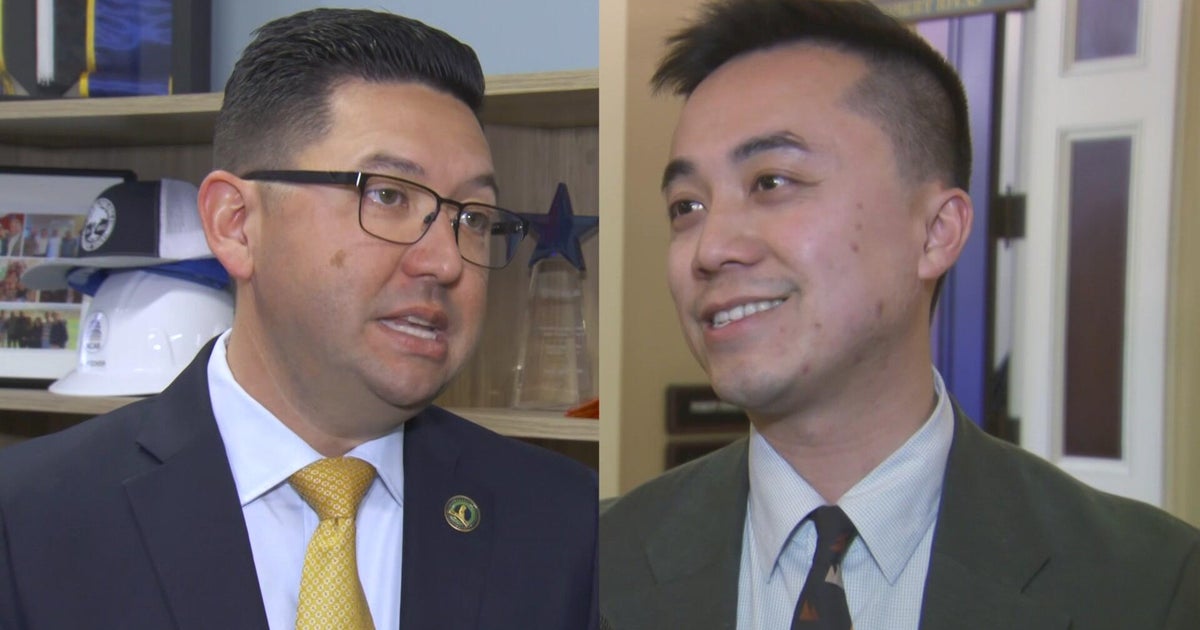Senators chart next steps on infrastructure after clearing key hurdle
Washington — Senate Democrats are plotting the path forward for the bipartisan infrastructure bill after it cleared a key procedural hurdle Wednesday in a vote that capped weeks of negotiations between a bipartisan group of senators and the White House.
Following the Senate's 67-to-32 vote to take up the measure, Senate Majority Leader Chuck Schumer said Thursday that senators should prepare for a flurry of legislative activity in the coming days as part of his effort for the chamber to approve the roughly $1 trillion infrastructure deal and a budget resolution to serve as the blueprint for a broader, $3.5 trillion second infrastructure measure.
The Senate's passage of both are crucial steps toward enacting a key pillar of President Biden's economic agenda.
"It's been my goal to pass both the bipartisan infrastructure bill and a budget resolution during this work period. Some pundits have called that a tall order. I understand that," Schumer said in remarks on the Senate floor. "But because of the vote last night, the Senate is now moving forward with the bipartisan infrastructure bill, and we are on track to pass both elements of the two-track strategy before we adjourn for August recess."
Following the vote Wednesday, the Democratic leader warned senators passing both "might take some long nights" and "might eat into our weekends."
The bipartisan infrastructure bill, which includes $550 billion in new spending on the nation's physical infrastructure, is the culmination of weeks of discussions between the White House, Democrats and Republicans in the Senate who hammered out the details of the infrastructure framework agreed to in June. While the negotiations at times appeared near collapse, with the parties sparring over how to pay for the infrastructure plan, a deal came together Wednesday, and Schumer swiftly proceeded with the vote to begin debate on the measure.
Seventeen Republicans joined all 50 Democrats in voting to clear a filibuster and pave the way for further action on the bill, though legislative text has yet to be released.
On Thursday, Senate Minority Leader Mitch McConnell said he was "glad" to see the progress on the infrastructure talks and called for a "robust bipartisan floor process" for the bill.
"A bipartisan compromise to responsibly finance these kinds of investments is guaranteed to be big and complex. It's guaranteed to be the kind of legislation that no member on either side of the aisle will think is perfect, but it's an important basic duty of government," he said.
McConnell was among the 17 Republicans who voted to advance the bipartisan measure, which he called a "focused compromise."
The White House touts the legislation as the biggest investment in the country's roads, bridges, ports, water and rail systems in decades, and evidence that bipartisanship in a sharply divided Washington is still possible.
The deal provides $110 billion for roads, bridges and major projects, $39 billion for public transit and $66 billion for railways. It also calls for $65 billion for broadband infrastructure deployment and $55 billion for clear water investments.
The infrastructure measure would be financed through unspent COVID-19 relief funds, targeted corporate user fees and strengthened tax enforcement regarding crypto currencies, according to the White House.
The bipartisan bill focusing on physical infrastructure is the first part of a two-track strategy for enacting Mr. Biden's broader domestic policy agenda. The White House and congressional Democrats are also working on the more sweeping $3.5 trillion package that will encompass the priorities left out of the more narrow measure, including Mr. Biden's plans for child care, health care, education and climate.
Democrats are using a process known as budget reconciliation to pass the larger bill, which would allow it to clear the evenly split Senate with a simple majority.
Still, the bipartisan infrastructure bill must still pass the House, where Democrats hold a slim majority. There, members of the progressive wing are already pushing back on the Senate's proposal, especially after Senator Kyrsten Sinema of Arizona, the lead Democratic negotiator of the bipartisan plan, balked at the $3.5 trillion price tag of the larger package.
Congressman Mondaire Jones, a Democrat from New York, said on Twitter that he will vote against the bipartisan deal "without a reconciliation package that meets this moment," and Congresswoman Alexandria Ocasio-Cortez accused Sinema of deliberately leaving lawmakers of color out of the talks.
"Good luck tanking your own party's investment on childcare, climate action, and infrastructure while presuming you'll survive a 3 vote House margin — especially after choosing to exclude members of color from negotiations and calling that a 'bipartisan accomplishment,'" she tweeted Wednesday.
House Speaker Nancy Pelosi has vowed the House will not move on the bipartisan bill until the Senate acts on the $3.5 trillion legislation.



